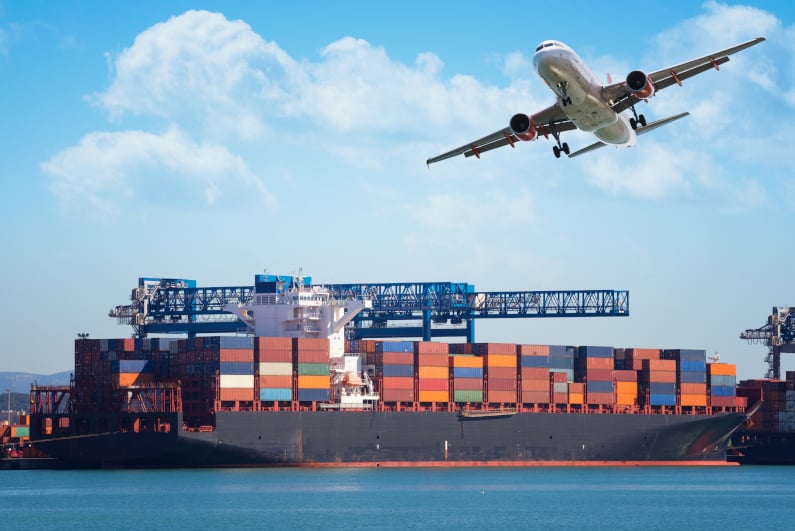- By TOP CHINA FREIGHT
- September 12, 2025
- Shipping
Table of Contents
Obtaining a reliable freight quote China is crucial for businesses managing imports from China. Costs, transit times, and customs processes vary widely depending on shipment type, volume, and delivery requirements. Without an accurate freight quote, importers risk overpaying or facing delays. This guide breaks down shipping options, pricing methods, documentation, and strategies to secure the most efficient logistics solutions.

What factors influence a freight quote from China?
Several key factors affect a freight quote from China:
1.Cargo weight & volume
Heavier or larger shipments increase costs.
2.Shipping mode
Air, sea, or rail freight have different per kg rates.
3.Origin & destination
Port location impacts handling and transit charges.
4.Customs fees
Duties, VAT, and inspections add to total cost.
5.Fuel surcharges & handling
Seasonal fuel changes and extra handling fees apply.
6.Cargo type
Fragile, hazardous, or temperature-sensitive items require special handling or insurance.
7.Seasonal demand
Peak periods like Chinese New Year often result in higher rates.
Tip:
Compare multiple freight forwarders to get competitive quotes, reduce hidden costs, and plan budgets effectively.
How is a freight quote from China calculated?
A freight quote generally combines several cost components:
1.Transport Cost:
Depends on mode (air, sea, rail) and distance.
2.Customs Fees:
Duties, taxes, and inspection charges.
3.Handling Fees:
Loading, unloading, and warehouse storage.
4.Surcharges:
Fuel, peak season, or security fees.
5.Insurance:
Optional but recommended for high-value goods.
| Component | Typical Range | Notes |
|---|---|---|
| Air Freight | $5–$10 per kg | Fast, ideal for urgent shipments |
| Sea Freight LCL | $0.8–$2 per kg | Cost-effective for small shipments |
| Sea Freight FCL | $1,500–$3,500 per 20ft container | Best for bulk cargo |
| Rail Freight | $2,000–$4,000 per container | Limited to certain regions |
Why does shipping method affect your China freight quote?
The choice of transport mode directly impacts cost, speed, and reliability:
| Shipping Method | Transit Time | Pros | Cons | Best For |
|---|---|---|---|---|
| Air Freight | 5–10 days | Fast, reliable | Expensive | High-value or urgent goods |
| Sea Freight LCL | 18–28 days | Cost-effective | Slower, potential port delays | Small to medium shipments |
| Sea Freight FCL | 18–28 days | Economical for bulk | Full container required | Large shipments |
| Rail Freight | 15–25 days | Eco-friendly | Limited routes | EU-bound shipments |
Selecting the right shipping method balances speed and cost. Companies often combine sea and air freight to optimize both.
How do cargo type and packaging affect the freight quote?
Cargo characteristics influence your quote. Fragile items require protective packaging, increasing volume and weight charges. Oversized or irregular cargo may incur special handling fees.
Efficient packaging reduces volumetric weight, lowering cost per kilogram. For example, compact cartons versus loose packaging can reduce air freight quotes significantly. Furthermore, categorizing goods correctly helps avoid customs penalties and ensures compliance with import regulations.
What are typical customs fees in a China freight quote?

Customs duties, VAT, and local charges add to total shipping costs. Accurate documentation is essential to prevent delays and extra expenses.
| Document Required | Purpose |
|---|---|
| Commercial Invoice | Declares value of goods |
| Packing List | Details cargo contents |
| Bill of Lading / AWB | Proof of shipment |
| Certificate of Origin | Verifies product origin |
| Customs Declaration | Required for clearance |
How can businesses reduce their China freight quote costs?
Combine multiple shipments to reduce per-unit cost.
Mix air and sea freight for urgency vs cost.
Avoid peak shipping periods.
Reduce volume and weight to lower freight charges.
Ensure documents are accurate to prevent demurrage fees.
Case Study: Electronics Importer in Germany

A German electronics retailer imported small, high-value devices from Shenzhen. Initially, they used air freight exclusively, paying $8 per kg.
By consolidating shipments and using sea freight for non-urgent orders, they reduced the average freight quote to $3 per kg, saving 40% annually. Urgent air shipments were reserved only for high-demand items.
This hybrid approach demonstrates how businesses can optimize costs without compromising delivery schedules.
Do express courier services impact your freight quote?
Express couriers like DHL or FedEx guarantee fast, door-to-door delivery but at higher per-kilogram rates. Standard freight is cheaper but often requires additional handling.
| Service Type | Cost per Kg | Delivery Speed | Best For |
|---|---|---|---|
| Express Courier | $9–$12 | 3–6 days | Samples, urgent parcels |
| Air Freight | $5–$10 | 5–10 days | High-value, time-sensitive goods |
| Sea Freight LCL | $0.8–$2 | 18–28 days | Bulk cargo, non-urgent shipments |
Businesses should evaluate urgency, cargo type, and budget to select the best option.
Conclusion
A reliable freight quote China is vital for importers seeking to control costs and ensure timely deliveries. Factors such as shipping mode, cargo type, customs fees, and seasonality affect per-kilogram rates. By understanding these variables, optimizing packaging, and choosing experienced freight forwarders, businesses can secure competitive quotes and maintain an efficient supply chain.
Need a Shipping Quote?
If you want expert guidance and peace of mind, our team is ready to assist.
TJ China Freight offers tailored solutions to help businesses of all sizes ship more reliably from China.

FAQ
Q1:How can I get the most accurate freight quote China?
Provide shipment details including weight, dimensions, cargo type, origin, and destination. Forwarders use this to generate a detailed quote reflecting all charges.
Q2:Does packaging influence a China freight quote?
Yes, efficient packaging reduces volumetric weight, lowering air freight costs. Use compact, standardized cartons to minimize per-kilogram charges.
Q3:Are customs fees included in a China freight quote?
Some forwarders include duties and taxes, but verify. Accurate documentation ensures quotes reflect total landed costs, avoiding unexpected expenses.
Q4:Can SMEs negotiate a better freight quote China?
Yes, by consolidating shipments, booking early, or comparing multiple forwarders, SMEs can secure lower per-kilogram rates without sacrificing service quality.
Q5:How do seasonal fluctuations affect freight quotes from China?
Peak seasons like Chinese New Year or Black Friday increase demand and rates. Off-season shipping can reduce costs and improve predictability.
